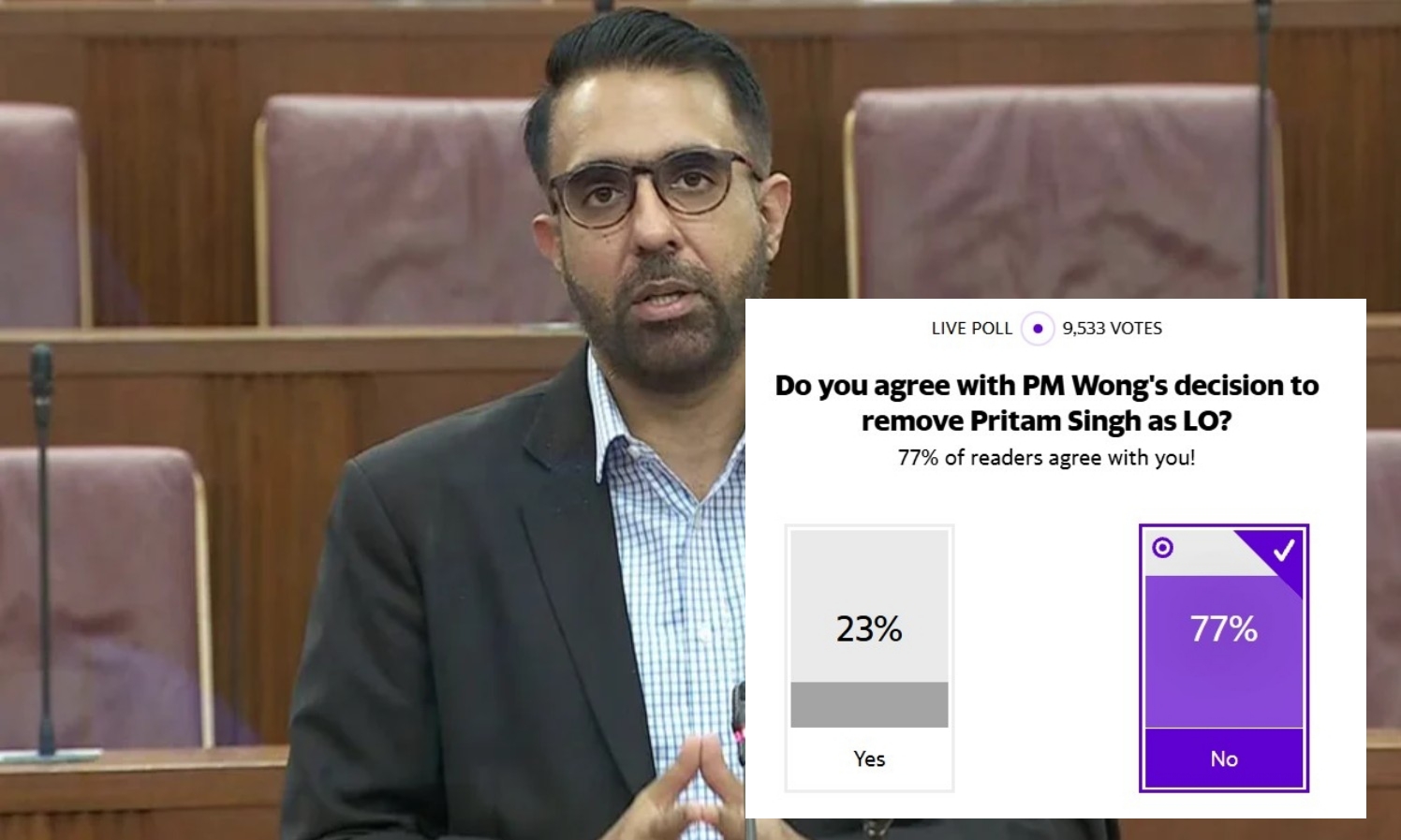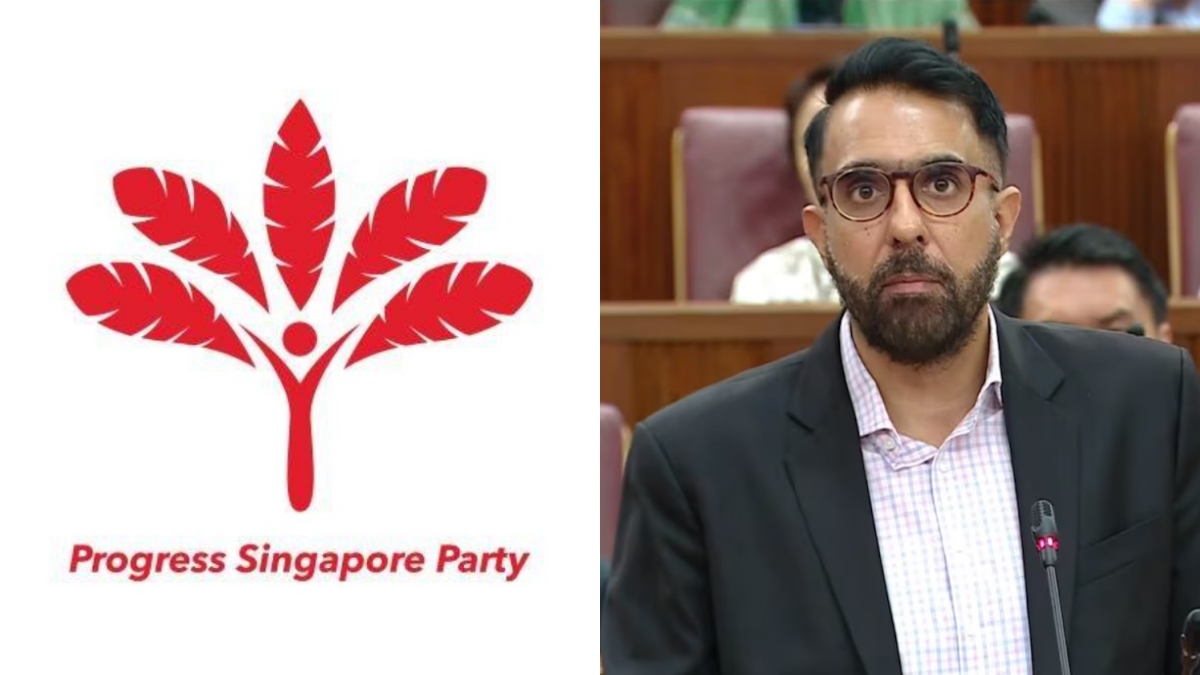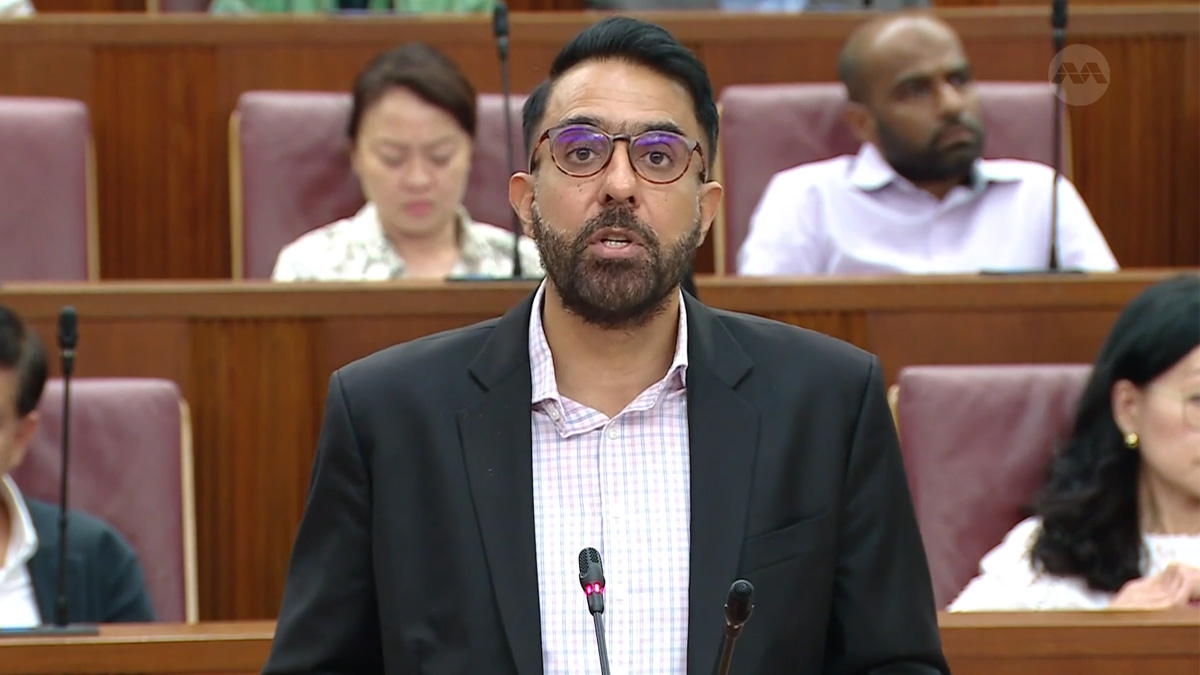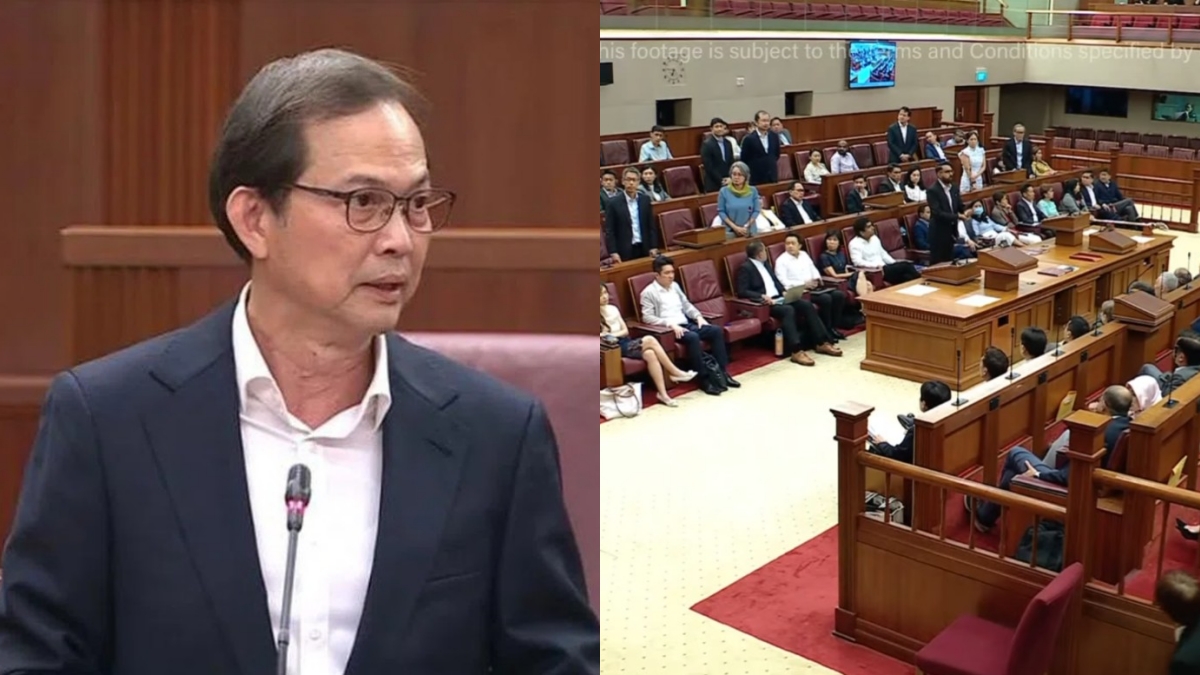Edwin Tong criticises Pritam Singh’s “court of public opinion” remark as dangerous and unacceptable
Minister for Law Edwin Tong has strongly condemned a recent remark by Leader of the Opposition Pritam Singh, who suggested that the court of public opinion could be more significant than formal judicial rulings.

Minister for Law Edwin Tong has sharply criticised comments by Leader of the Opposition Pritam Singh, who suggested that the ‘court of public opinion’ could be more significant than judicial rulings.
Speaking on 8 November, Tong described Singh’s remarks as “outrageous, plainly wrong and completely unacceptable”, warning that they undermined public trust in Singapore’s legal institutions.
The remarks came from an episode of CNA’s The Assembly, which aired on 5 November. Singh was asked about his February 2024 conviction for lying under oath to Parliament’s Committee of Privileges (COP), stemming from the handling of former Workers’ Party (WP) MP Raeesah Khan’s false statement in Parliament in August 2021.
Singh: “Politics is about public standing”
During the interview, Singh said, “I’m in the business of politics. My political opponents will do whatever it takes to lower my esteem and the esteem of my party in the public eye.” He added that a clear conscience gave him confidence, even amidst criticism.
When asked specifically about the conviction, Singh stated, “I believe the court of public opinion can be bigger than any court in the world.”
Singh also pointed to the Workers’ Party’s respectable performance at the May 2024 General Election, interpreting it as public vindication of his role in the incident.
Tong: Courts, not popularity, decide justice
Tong made the remarks during a doorstop interview at a community leadership event held at the National Community Leadership Institute in Buona Vista.
He noted that Singh had undergone a full and open trial and was convicted for lying to a parliamentary select committee, with the District Court issuing a nearly 150-page judgment. “This judgment is today valid and binding,” he said, adding that Singh has exercised his right to appeal.
While refraining from commenting on the appeal itself, Tong stressed that no one should “dismiss or denigrate the court’s judgment or suggest that public opinion can somehow trump a court’s decision.”
He described this view as “a very dangerous idea,” adding: “We have laws, and in Singapore, the rule of law is a cornerstone of our system. This is so we do not have rule of the mob.”
Tong also responded to Singh’s suggestion that the case was politically motivated.
“This is the kind of response we have seen all over the world, from populist politicians who attack judges and courts when rulings go against them. They think they are above the law.”
“This kind of irresponsible politics should have no place in Singapore. Singapore is built on honesty and integrity, but Mr Singh is delegitimising our courts with his comments, saying it doesn’t matter what he does as long as he gets elected.”
He warned that Singh’s remarks go beyond the judiciary. “What Mr Singh said also undermines public trust in our system, in our law enforcement and in our judiciary.”
Tong concluded: “In Singapore, the courts decide cases not on politics, but based on facts and the law. And no one is above the law — not the Leader of the Opposition, not any minister. If Mr Singh has done no wrong, the court will judge and rule as such. But if the conviction stands, then he should accept it fully and take responsibility.”
The Raeesah Khan case: From falsehood to prosecution
Singh’s conviction stems from his role in the Raeesah Khan case, where the former MP admitted in November 2021 to having lied to Parliament.
Khan falsely claimed to have accompanied a sexual assault victim to a police station and alleged police misconduct. She later admitted she had not been present and had relied on second-hand information.
The Committee of Privileges investigated the incident and recommended that Khan be fined S$35,000 for two instances of lying. However, it also focused on the conduct of WP leaders.
The Committee concluded that Singh and WP vice-chair Faisal Manap had known of the falsehood and had advised Khan to stick to her account. It stated they had failed to rectify the matter in Parliament, amounting to potential criminal wrongdoing.
Parliament, where the People’s Action Party (PAP) holds the majority, voted in February 2022 to endorse the Committee’s recommendations. Singh and Faisal were referred to the Public Prosecutor for potential criminal charges — a significant step, given Khan’s own punishment was financial and confined to Parliament.
Singh was subsequently charged under the Parliament (Privileges, Immunities and Powers) Act and convicted on two counts of giving false evidence. He was fined a total of S$14,000, as recommended by the Attorney-General’s Chambers — below the S$10,000 per-charge threshold that would disqualify him from future elections.
Appeal hearing challenges conviction and judicial reasoning
On 4 November 2025, Singh returned to court to appeal both his conviction and the S$14,000 fine. His legal counsel argued that the trial judge had overlooked key evidence, including the political context in which Singh gave his testimony and his intentions at the time.
They contended that Singh did not act with deliberate dishonesty, but exercised political judgment in a complex situation where his responses were later mischaracterised.
They also argued that Singh had not been given sufficient opportunity to explain nuances in his testimony, and that the prosecution had selectively interpreted his conduct while ignoring the broader actions and involvement of others in the matter.
The prosecution maintained that the trial judge’s findings were supported by the evidence. They pointed to inconsistencies in Singh’s statements and argued that his failure to act reflected a sustained course of dishonesty.
The High Court has reserved judgment, with a decision expected at a later date.
Testimony in 2024 trial
Testimony during Singh’s 2024 trial brought renewed focus on how decisions were made within the WP leadership team and what advice Raeesah Khan received before and after her parliamentary falsehood.
Two key witnesses — Ms Loh Pei Ying, Khan’s former secretarial assistant, and Mr Yudhishthra Nathan, a former WP cadre — both admitted to roles that may have contributed to the misleading statements made in Parliament.
Loh came under scrutiny for redacting a message in evidence submitted to the COP. The full message, from Nathan, advised: “At most, apologise for not having the facts about her age accurate.” She conceded that withholding this part was “manipulative,” though she claimed it was unrelated to the investigation.
Loh was also challenged on whether she had encouraged Khan to continue operating in a “grey area” — not telling the truth, but not fully lying either. While she disputed the framing, she admitted others, including party leaders, were thinking similarly.
Nathan, under cross-examination, admitted that due to a lack of clear direction from party leadership after an October 2021 meeting, he had advised Khan to maintain the false narrative. “At that very specific point in time,” he said, “given the circumstances, I would say yes.”
He added that his advice reflected the failure of party leadership to devise a proper plan and the ambiguous signals given over several months.
Both Loh and Nathan became prosecution witnesses during the trial and were not charged with any offences.











